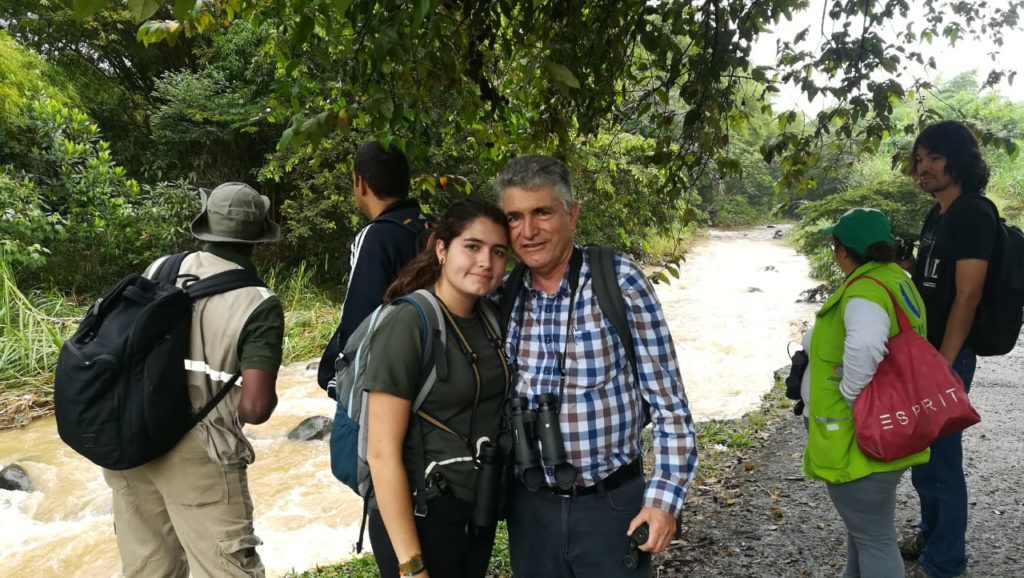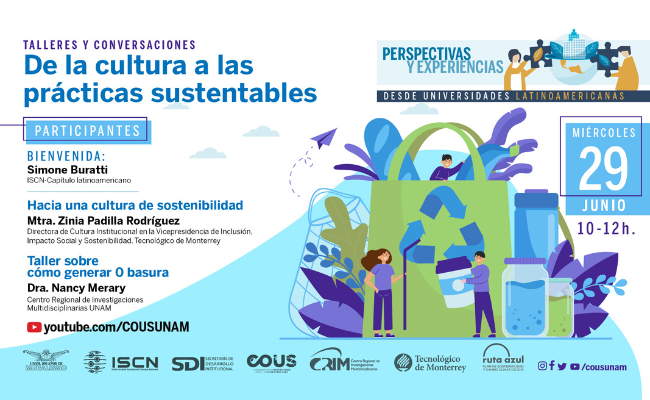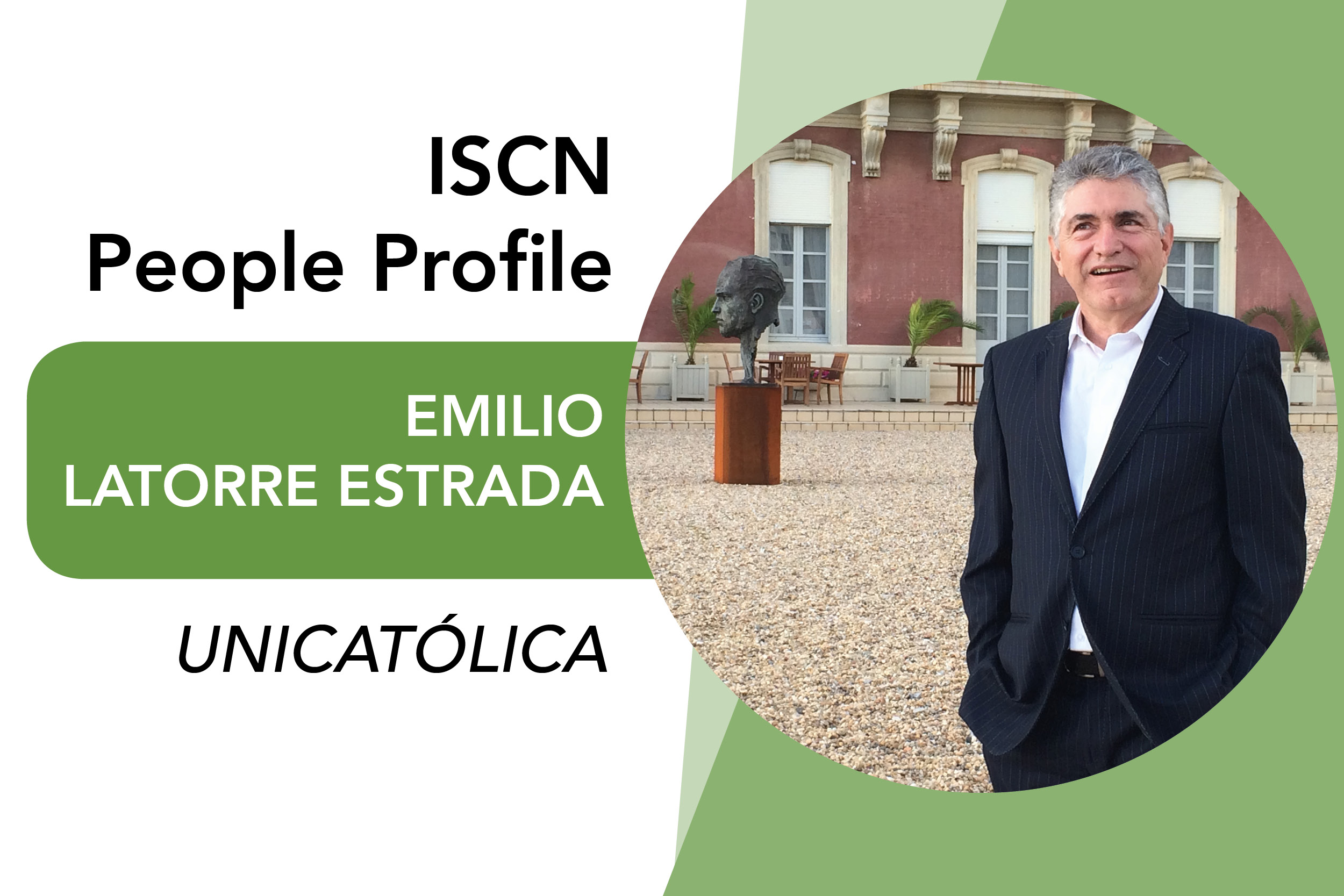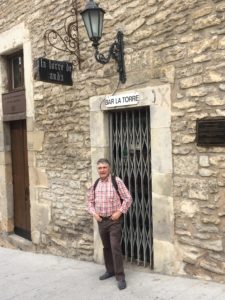From Culture To Sustainable Practices webinar recap
On June 29, 2022, the Universidad Nacional Autonoma de Mexico (UNAM) and the Tecnologico de Monterrey joined forces for the first workshop organized and promoted by the ISCN Latin American Chapter: “From Culture to Practice of Sustainability. Practices and experiences from Latin American Universities”.
Zinia Padilla of Tecnologico de Monterrey presented a report on the first year of the Culture component of the Ruta Azul. Plan de Cambio Climatico 2025 (2025 Sustainability And Climate Change Plan), an integrated plan built on five key components: Culture of Sustainability, Mitigation, Adaptation, Education, Research, and Outreach. Zinia outlined the challenges to go beyond a general familiarization of the public but rather to insert new knowledge and break paradigms through education, tutoring, and training.
One of our biggest challenges is to provide change management tools, so that the initiatives and activities that arise are in collaboration with the other axes of the project.
Nancy Merary from Campus Morelos of UNAM introduced the Programa Manejo Integral de Residuos Solidos Universitarios con Enfoque Basura Cero (Zero Waste Management Program) as a specific commitment of the university to transform public practices, improve management systems, reduce waste impact, and retrieve subproducts for a more effective recycling chain.
We want to be an example of commitment to the environment. Likewise, we are interested in dignifying and modernizing the management system of campus waste. Unfortunately, the latter is denigrating and precarious for the workers in many other university spaces since it does not grant an actual management of our waste.
The full session recording in Spanish is available on the COUS UNAM YouTube channel:
Emilio Latorre Estrada
Emilio Latorre Estrada is the Director of the Sustainable Campus Office at Fundación Universitaria Católica Lumen Gentium - UNICATÓLICA in Cali, Columbia.
"As an engineer, an urban and regional planner, and a dreamer, I believe it is still possible to reconnect Society with Nature."
Big Idea(s) for Advancing Sustainability in Higher Education
What does the world need most right now?
The world needs truth and organisations that are reliable and respected so that they can speak about the realities that are the consequences of objective research, based on real facts. Maybe this organisation could be it, universities that come together in networks at the local, regional, national and international level (like ISCN) and speak loudly about environmental problems, inequalities, segregation, neocolonialism, racism and classism, the scandal of wars still in the twenty-first century, and animal protection, among many other things. It is impossible to speak about sustainability without considering the social and political aspects. But finally, the worst that could happen is to generalise the idea of not doing anything to change the world, because the worst thing an individual can do is too little. We must behave responsibly with others and with Nature, before we think of changing the actions of others.
Leadership and Inspiration
What does excellent leadership look like to you?
Leadership is the capacity to move other people around, ideas, and common purposes and at the same time give them the possibility of public recognition and visibility.
Tenacity and Perseverance
What is the biggest implementation barrier you see? What would you need to overcome it?
The biggest obstacle for implementing democracy, sustainability, and equality is selfishness. We humans think individually, we live in crowded cities that depend on the region in which they are situated, and still believe that we are not dependent on others and on nature. Culture is the biggest barrier to equality, sustainability, and overcoming sexism and classism. One of the most important things to change in our perception of the world at all levels is to change selfishness to collaboration. The pandemic could not have been controlled without collaboration, and in the same way climate change, inequality, migration, and poverty cannot be overcome without collaboration. Compete to collaborate, not to win. That would be the real purpose of cultural change and education in the face of the big problems we have to solve.

Fun Fact
What is your favourite activity in your spare time?
When I spent my sabbatical in South Carolina, USA a friend used to have bird feeders in her rural home. But to my surprise, when I came back to Colombia, I learned that I lived in the number one country for bird watching in the world, and that I had lived with birds without seeing them. So, I became a bird watcher and that changed my life. Because you can do birdwatching wherever you go. But always, always, see them in freedom.


